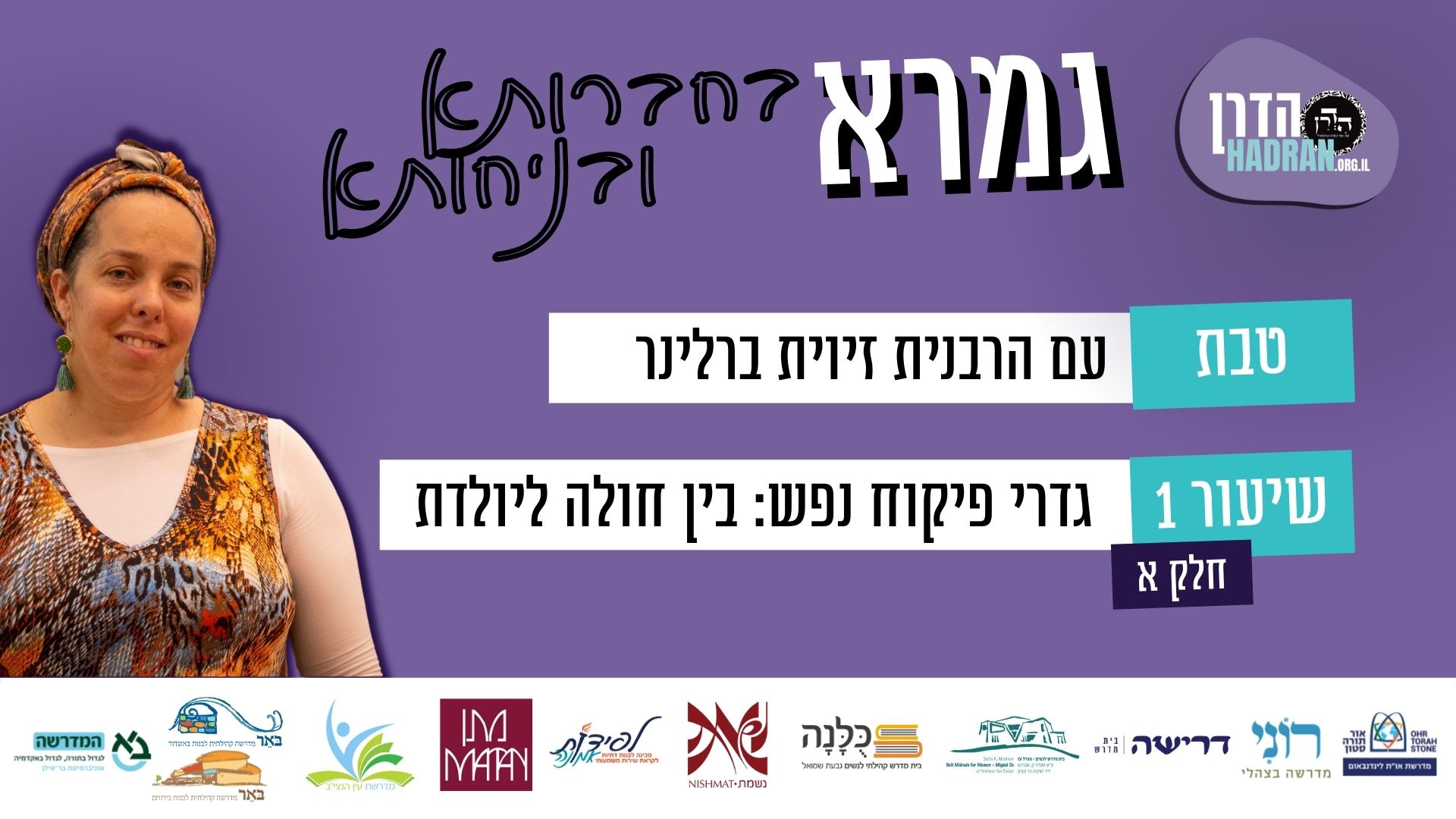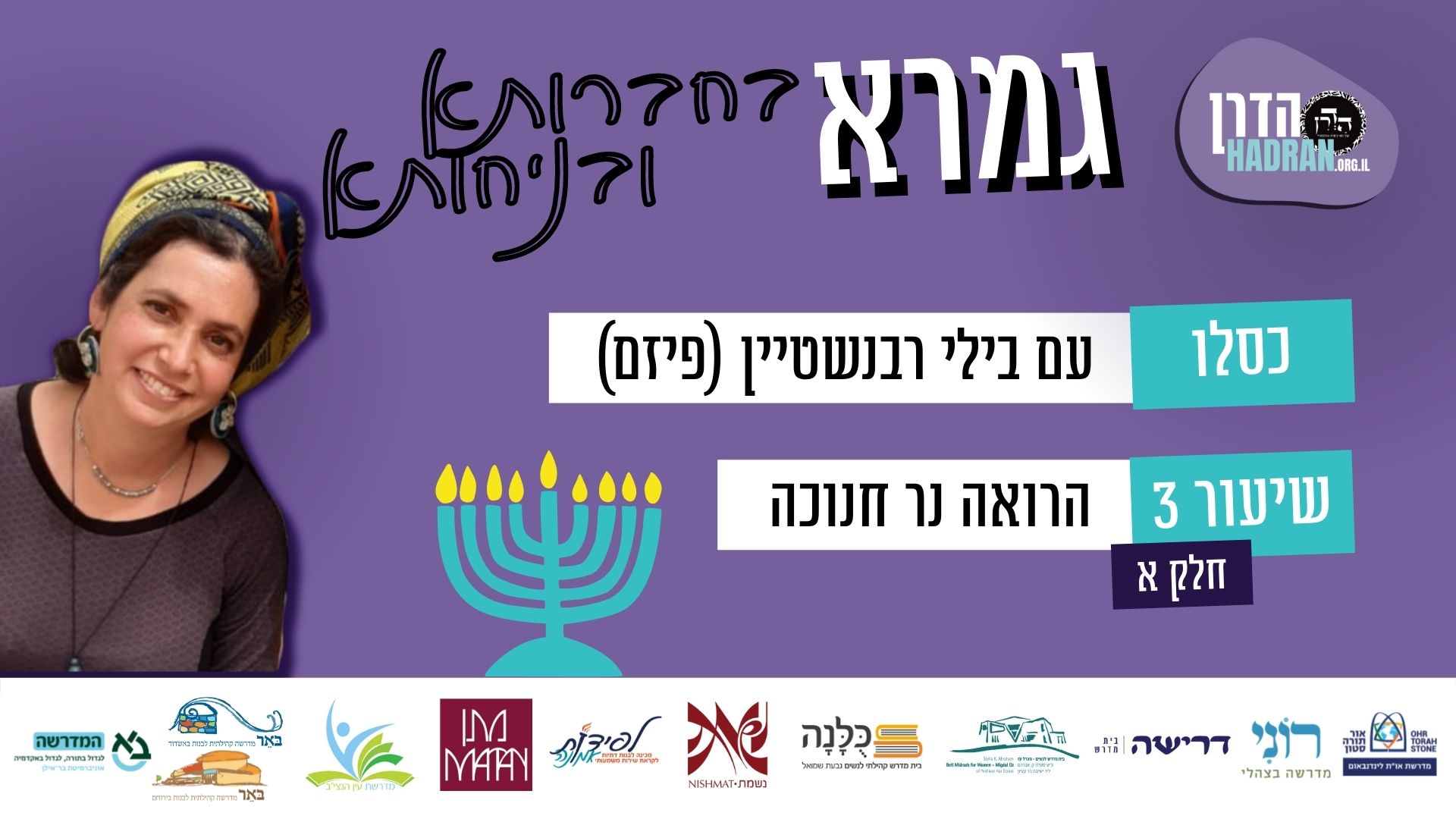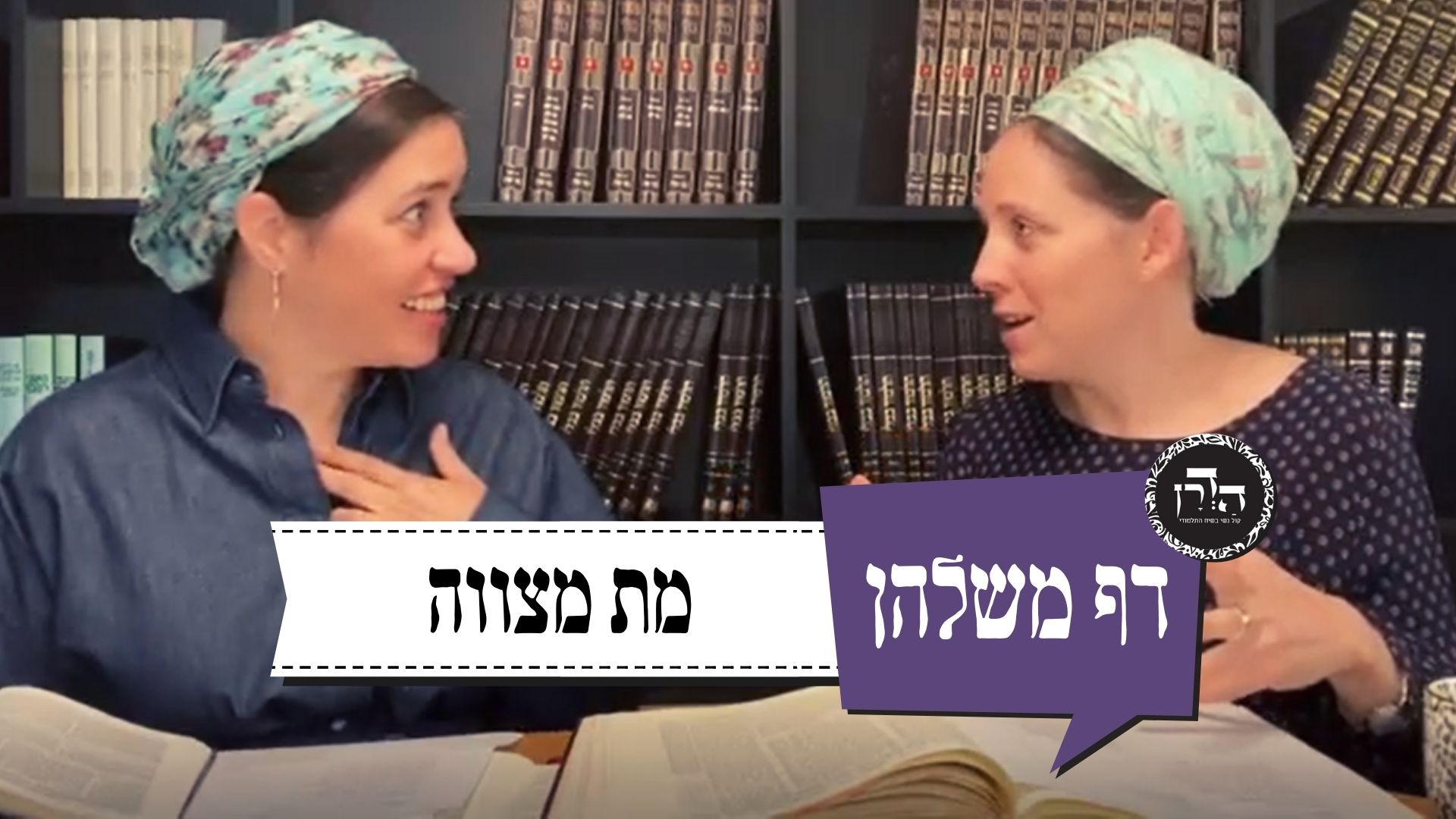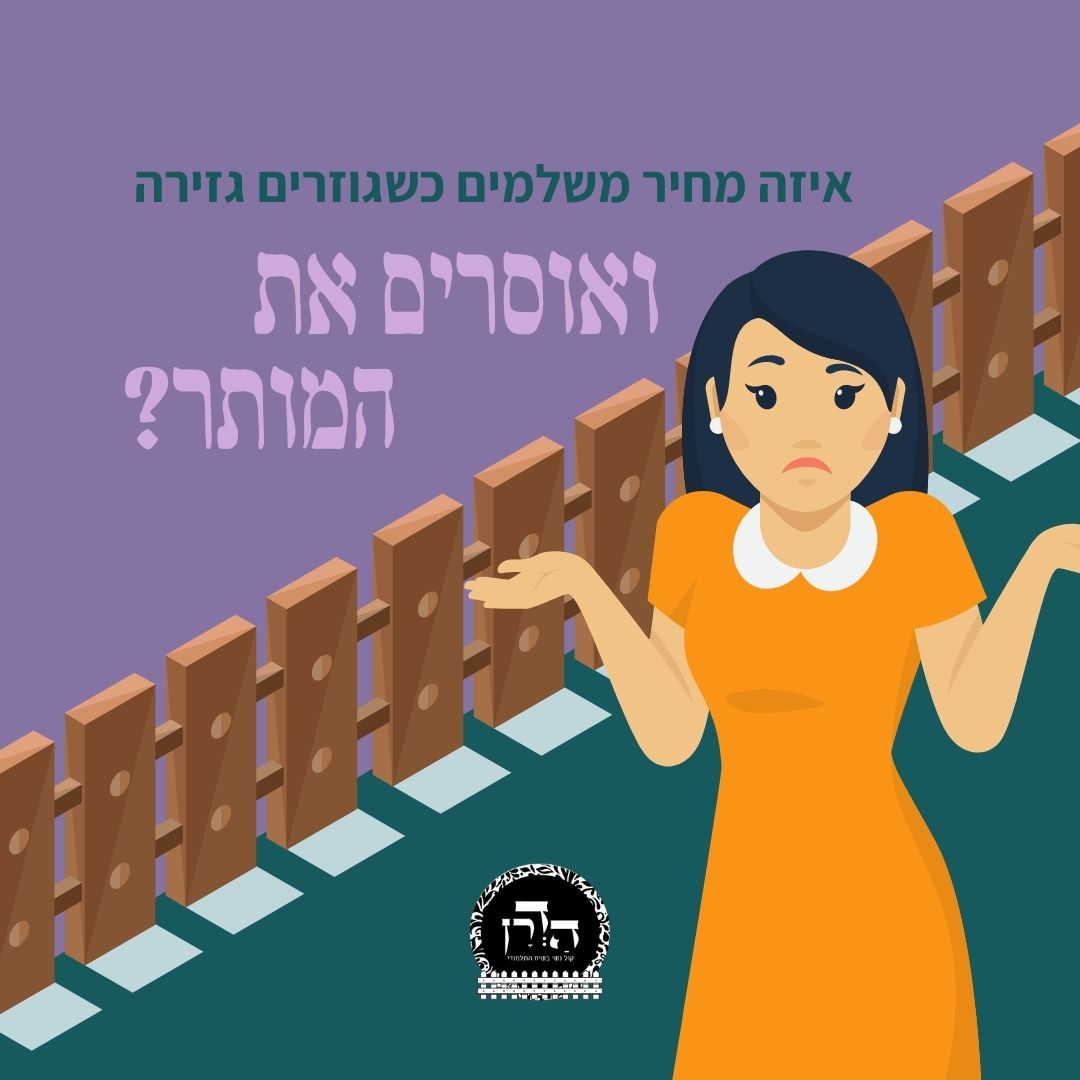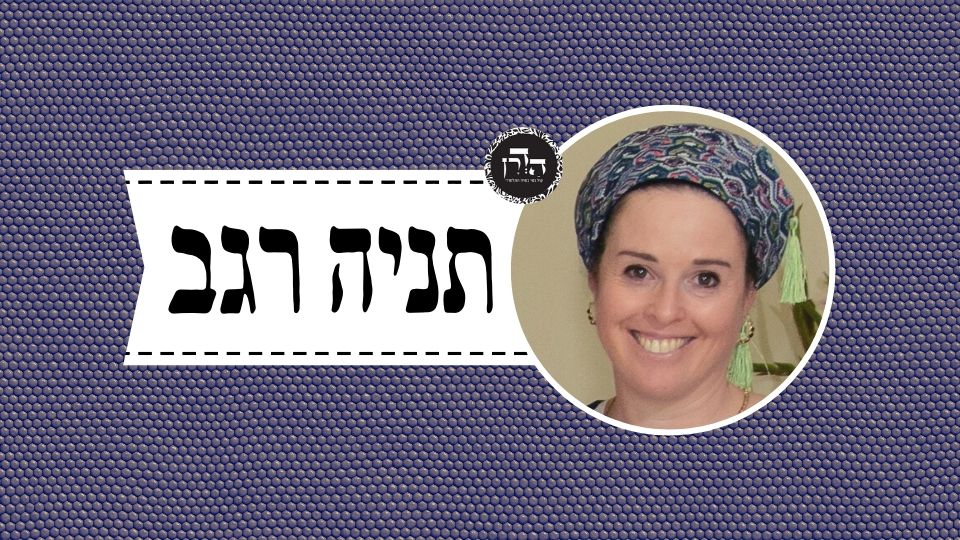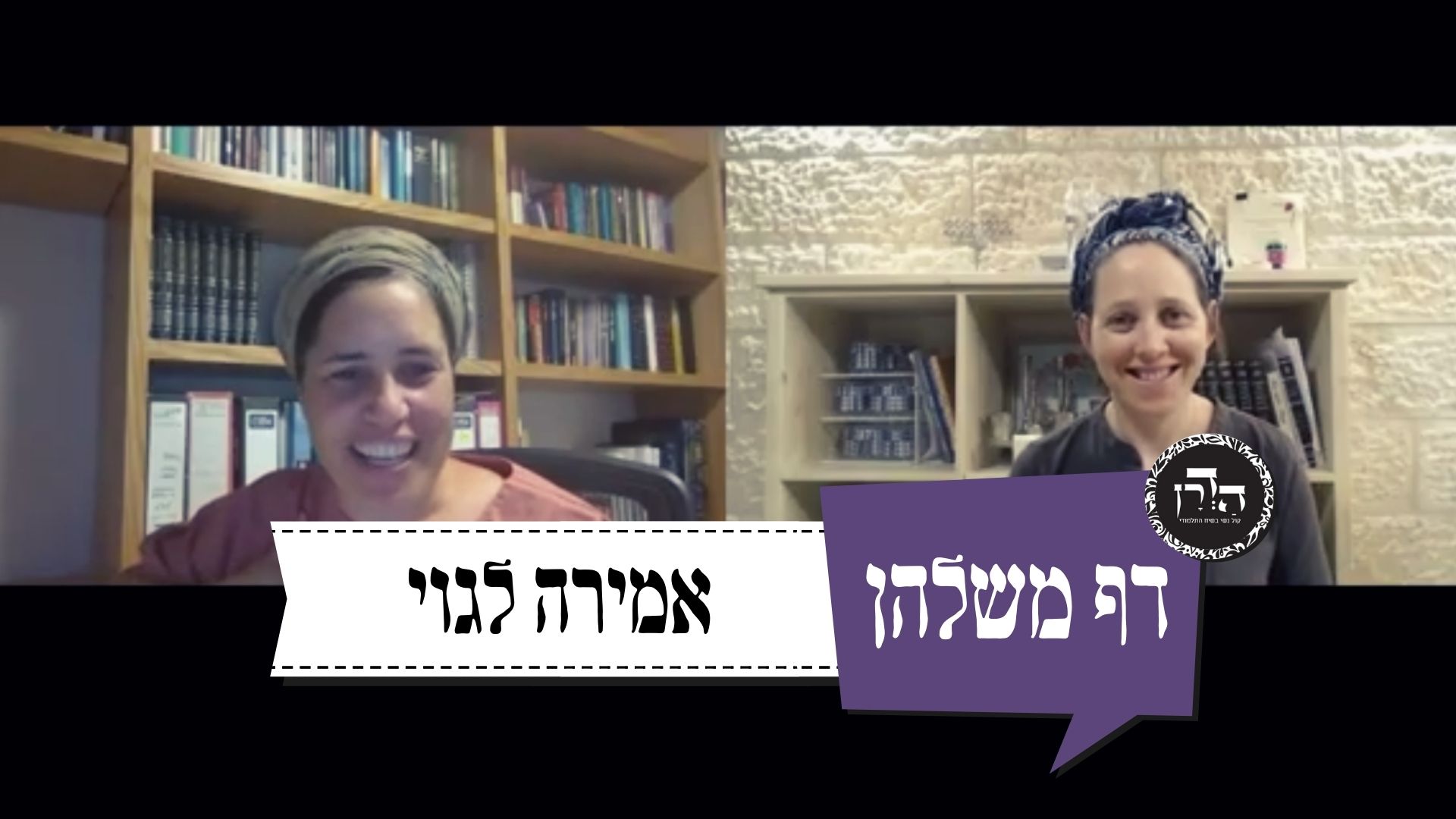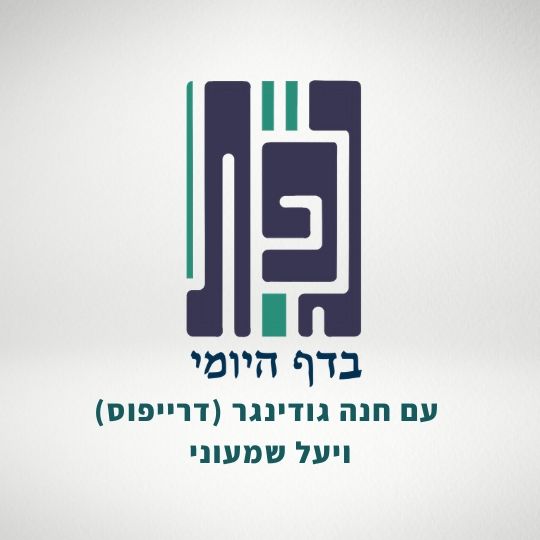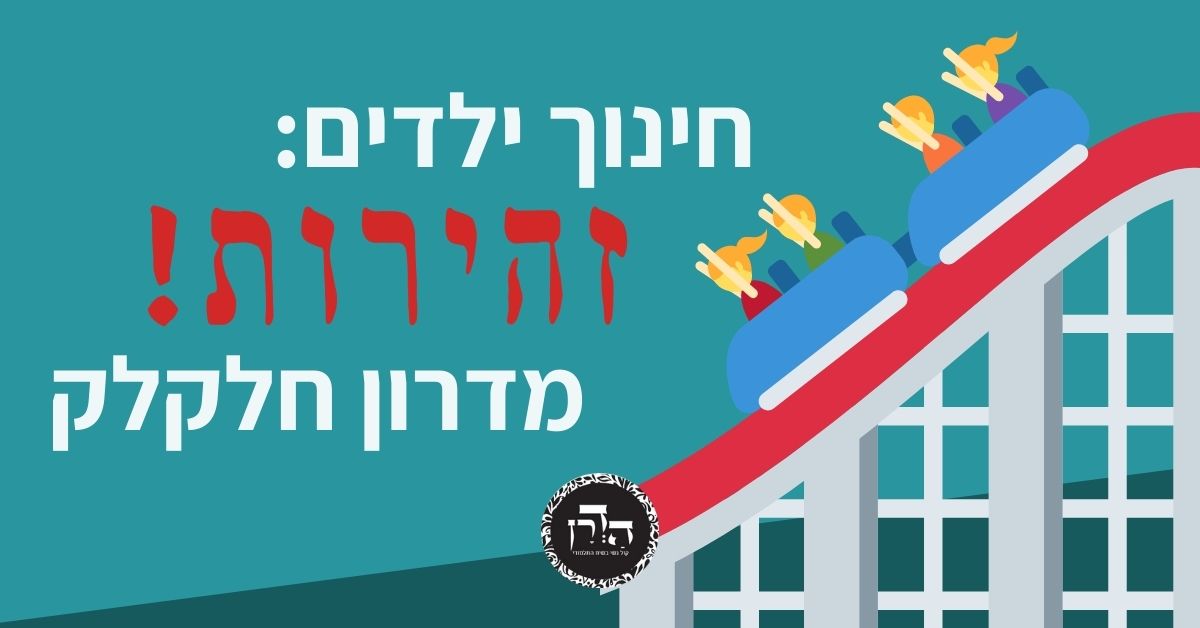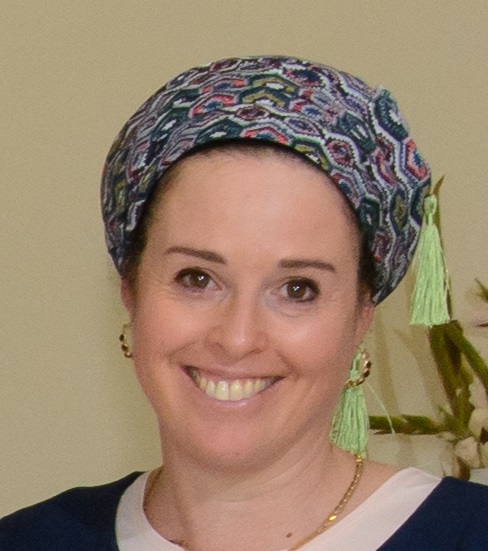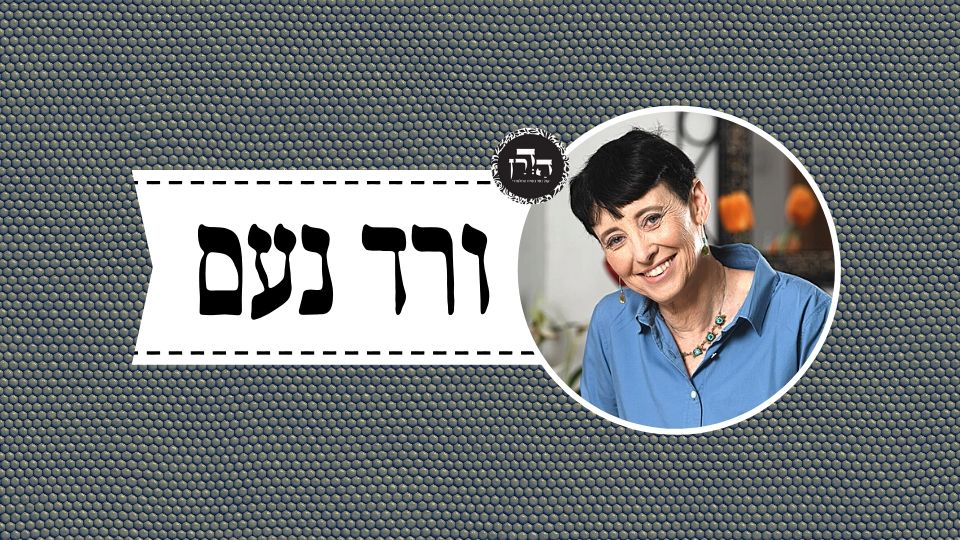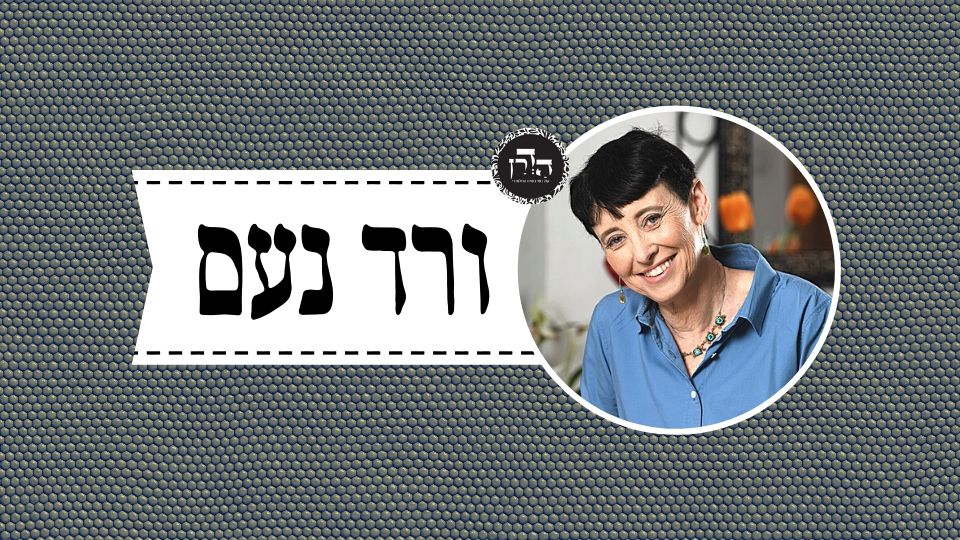שבת כה
עֲשֵׂה. וְהָוֵה לֵיהּ יוֹם טוֹב עֲשֵׂה וְלֹא תַעֲשֶׂה — וְאֵין עֲשֵׂה דּוֹחֶה אֶת לֹא תַעֲשֶׂה וַעֲשֵׂה.
The latter term is a positive mitzva to rest. And, if so, observance of a Festival is a mitzva that was commanded with both a positive mitzva to rest and a prohibition: “You shall do no manner of servile work” (Leviticus 23:8). And there is a principle that a positive mitzva, e.g., burning consecrated items whose time has expired, does not override a mitzva that was commanded with both a prohibition and a positive mitzva, e.g., observance of the Festival.
בְּיוֹם טוֹב הוּא דַּאֲסִיר, הָא בְּחוֹל — שַׁפִּיר דָּמֵי: מַאי טַעְמָא? אָמַר רַב: כְּשֵׁם שֶׁמִּצְוָה לִשְׂרוֹף הַקֳּדָשִׁים שֶׁנִּטְמְאוּ, כָּךְ מִצְוָה לִשְׂרוֹף אֶת הַתְּרוּמָה שֶׁנִּטְמֵאת. וְאָמְרָה תּוֹרָה: בִּשְׁעַת בִּיעוּרָהּ תֵּיהָנֵי מִמֶּנָּה. הֵיכָן אָמְרָה תּוֹרָה? מִדְּרַב נַחְמָן, דְּאָמַר רַב נַחְמָן אָמַר רַבָּה בַּר אֲבוּהּ, אָמַר קְרָא: ״וַאֲנִי הִנֵּה נָתַתִּי לְךָ אֶת מִשְׁמֶרֶת תְּרוּמוֹתָי״ — בִּשְׁתֵּי תְרוּמוֹת הַכָּתוּב מְדַבַּר, אַחַת תְּרוּמָה טְהוֹרָה וְאַחַת תְּרוּמָה טְמֵאָה. וְאָמַר רַחֲמָנָא: ״לְךָ״ — שֶׁלְּךָ תְּהֵא, לְהַסִּיקָהּ תַּחַת תַּבְשִׁילְךָ.
By inference, the conclusion is that, specifically on a Festival, lighting with burnt oil is prohibited. During the week one may well do so. The Gemara asks: What is the reason for this distinction? It would be reasonable to say that it is prohibited to derive any benefit from teruma that became ritually impure. Rav said: Just as there is a mitzva to burn consecrated items that became ritually impure, so too, there is a mitzva to burn teruma that became ritually impure, and the Torah said: While it is being destroyed, derive benefit from it. The Gemara asks: Where did the Torah say this? Where is there an allusion to this in the Bible? The Gemara answers: It can be derived from the statement of Rav Naḥman, as Rav Naḥman said that Rabba bar Avuh said: The verse said: “And I, behold, I have given you the charge of My terumot” (Numbers 18:8). From the amplification of the plural: My terumot, it is derived that the verse is speaking of two terumot, one teruma that is ritually pure and one teruma that is ritually impure. And God said: “I have given you,” i.e., it shall be yours, and you may derive benefit from it. Since there is a stringent prohibition against eating it, the benefit permitted is to burn it beneath your cooked dish. Similar forms of benefit may also be derived from burning teruma.
וְאִיבָּעֵית אֵימָא מִדְּרַבִּי אֲבָהוּ. דְּאָמַר רַבִּי אֲבָהוּ אָמַר רַבִּי יוֹחָנָן: ״וְלֹא בִעַרְתִּי מִמֶּנּוּ בְּטָמֵא״ — מִמֶּנּוּ אִי אַתָּה מַבְעִיר, אֲבָל אַתָּה מַבְעִיר שֶׁמֶן שֶׁל תְּרוּמָה שֶׁנִּטְמֵאת. וְאֵימָא: מִמֶּנּוּ אִי אַתָּה מַבְעִיר, אֲבָל אַתָּה מַבְעִיר שֶׁמֶן שֶׁל קֹדֶשׁ שֶׁנִּטְמָא!
And if you wish, say instead an alternative manner to derive this halakha, from the statement of Rabbi Abbahu, as Rabbi Abbahu said that Rabbi Yoḥanan said: It is written in the confession of the tithes: “I have not eaten thereof in my mourning, neither have I destroyed from it while impure” (Deuteronomy 26:14). By inference: From it you may not destroy, but you may destroy the oil of teruma that has become ritually impure. The Gemara asks: And say differently: From it you may not destroy, but you may destroy and derive benefit from burning consecrated oil that became ritually impure.
לָאו קַל וָחוֹמֶר הוּא? מָה מַעֲשֵׂר הַקַּל אָמְרָה תּוֹרָה לֹא בִּעַרְתִּי מִמֶּנּוּ בְּטָמֵא, קֹדֶשׁ חָמוּר — לֹא כׇּל שֶׁכֵּן?
The Gemara responds: That possibility is unacceptable. Is it not an a fortiori inference? If with regard to the tithe which is lenient, the Torah said: Neither have I destroyed from it, while impure, items consecrated to the Temple, which are more stringent, all the more so that it is prohibited to burn it while ritually impure.
אִי הָכִי, תְּרוּמָה נָמֵי לֵימָא קַל וָחוֹמֶר הוּא! — הָא כְּתִיב ״מִמֶּנּוּ״.
The Gemara rejects this: If so, that this matter is derived through an a fortiori inference, then, with regard to teruma as well, let us say that it is an a fortiori inference, as teruma is more stringent than tithes. If it is prohibited to benefit from tithes while they are burning, all the more so would one be prohibited to benefit from the teruma while it is burning. The Gemara answers: Doesn’t it say: From it? From there it is derived that there is an item excluded from the prohibition of burning in ritual impurity.
וּמָה רָאִיתָ! — מִסְתַּבְּרָא קֹדֶשׁ לָא מְמַעֵיטְנָא, שֶׁכֵּן (סִימָן) פנ״ק עכ״ס: פִּיגּוּל, נוֹתָר, קׇרְבָּן, מְעִילָה וְכָרֵת, אָסוּר לְאוֹנֵן.
The Gemara asks: And what did you see that led you to conclude that “from it” comes to exclude teruma? Perhaps “from it” comes to exclude consecrated items. The Gemara replies: It is reasonable that I do not exclude consecrated items from the prohibition against benefiting from its burning, as with regard to consecrated items there are many stringent elements. Their Hebrew acronym is peh, nun, kuf, ayin, kaf, samekh, which is a mnemonic for the following terms. Piggul: With regard to an offering, if, during one of the services involved in its sacrifice, i.e., slaughter, receiving the blood, bringing it to the altar, sprinkling it on the altar, the priest or the one bringing the offering entertains the thought of eating the sacrifice at a time that is unfit for eating, it is thereby invalidated. Notar: Meat of a sacrifice that remained beyond its allotted time may not be eaten and must be burned. Korban me’ila: One who unwittingly derives benefit from consecrated items is required to bring a guilt-offering for misuse of consecrated items. Karet: The punishment of one who eats consecrated items while ritually impure is karet. Asur le’onen: An acute mourner, i.e., one whose relative died that same day and has not yet been buried, is prohibited to eat consecrated items. None of these halakhot applies to teruma. Therefore, consecrated items are more stringent than teruma, and therefore it is consecrated items that are not excluded from the prohibition against deriving benefit while ritually impure.
אַדְּרַבָּה, תְּרוּמָה לָא מְמַעֵיטְנָא, שֶׁכֵּן מחפ״ז (סִימָן): מִיתָה, חוֹמֶשׁ,
The Gemara rejects this: On the contrary, it is teruma that I would not exclude from the prohibition, as, with regard to teruma, there are many stringent elements represented by the acronym mem, ḥet, peh, zayin, which is a mnemonic for the following: Mita: One for whom teruma is prohibited who ate it intentionally is punishable by death at the hand of Heaven. Ḥomesh: A non-priest, for whom teruma is prohibited, who unwittingly ate teruma is obligated to pay its value to the priest plus one-fifth of the sum.
וְאֵין לָהּ פִּדְיוֹן, וַאֲסוּרָה לְזָרִים. הָנָךְ נְפִישָׁן.
And, teruma does not have the possibility of pidyon: redemption, as, once it is sanctified, it may not be redeemed and rendered non-sacred. And it is prohibited to zarim: non-priests may not eat it. These stringencies do not apply to consecrated items. The Gemara answers: Nevertheless, those stringencies that apply to consecrated items are more numerous than those that apply to teruma. Therefore, it is appropriate to be more stringent with consecrated items and exclude impure teruma from the prohibition against deriving benefit when burning it.
וְאִיבָּעֵית אֵימָא: קֹדֶשׁ חָמוּר שֶׁכֵּן עָנוּשׁ כָּרֵת. רַב נַחְמָן בַּר יִצְחָק אָמַר, אָמַר קְרָא: ״תִּתֵּן לוֹ״. ״לוֹ״ — וְלֹא לְאוּרוֹ. מִכְּלָל דְּבַת אוּרוֹ הוּא.
And if you wish, say instead a different reason, without counting the number of stringencies: Consecrated items are more stringent because one who eats them while ritually impure is punishable by karet, while in the case of teruma the punishment is death at the hand of Heaven. In this regard, the Torah is more stringent vis-à-vis consecrated items than it is vis-à-vis teruma. Rav Naḥman bar Yitzḥak said that there is a different proof that one is permitted to benefit from teruma while it is burning. As the verse said: “The first fruits of your grain, of your wine, and of your oil, and the first of the fleece of your sheep shall you give him” (Deuteronomy 18:4). The Sages derived from this verse: Give the priest teruma that is ritually pure, that is fit for him to consume, and do not give the priest teruma that is suitable only for his fire, to be burned. By inference, ritually impure teruma is suitable for his fire, i.e., a priest may derive benefit from it.
רַבִּי יִשְׁמָעֵאל אוֹמֵר כּוּ׳: מַאי טַעְמָא? אָמַר רָבָא: מִתּוֹךְ שֶׁרֵיחוֹ רַע גְּזֵרָה שֶׁמָּא יַנִּיחֶנָּה וְיֵצֵא. אֲמַר לֵיהּ אַבָּיֵי: וְיֵצֵא! אֲמַר לֵיהּ: שֶׁאֲנִי אוֹמֵר הַדְלָקַת נֵר בְּשַׁבָּת חוֹבָה. דְּאָמַר רַב נַחְמָן בַּר רַב זַבְדָּא, וְאָמְרִי לַהּ אָמַר רַב נַחְמָן בַּר רָבָא אָמַר רַב: הַדְלָקַת נֵר בְּשַׁבָּת חוֹבָה, רְחִיצַת יָדַיִם וְרַגְלַיִם בְּחַמִּין עַרְבִית, רְשׁוּת. וַאֲנִי אוֹמֵר: מִצְוָה.
We learned in the mishna that Rabbi Yishmael says that kindling a lamp on Shabbat with tar is prohibited. The Gemara asks: What is the reason for this? Rava said: Because its odor is bad the Sages issued a decree prohibiting the use of tar, lest one forsake the light and leave. Abaye said to him: And let him leave. What obligation is there to sit next to the light? Rava said to him: Because I say that kindling Shabbat lights is an obligation, and one is required to eat specifically by that light in deference to Shabbat. As Rav Naḥman bar Rav Zavda said, and others say that it was Rav Naḥman bar Rava who said that Rav said: Kindling the Shabbat lamps is an obligation, whereas washing one’s hands and feet with hot water in the evening prior to Shabbat is merely optional. And I say: Washing is not merely optional; it is a mitzva even though it is not an obligation.
מַאי מִצְוָה? דְּאָמַר רַב יְהוּדָה אָמַר רַב: כָּךְ הָיָה מִנְהָגוֹ שֶׁל רַבִּי יְהוּדָה בַּר אִלְעַאי, עֶרֶב שַׁבָּת מְבִיאִים לוֹ עֲרֵיבָה מְלֵאָה חַמִּין וְרוֹחֵץ פָּנָיו יָדָיו וְרַגְלָיו וּמִתְעַטֵּף, וְיוֹשֵׁב בִּסְדִינִין הַמְצוּיָּיצִין, וְדוֹמֶה לְמַלְאַךְ ה׳ צְבָאוֹת. וְהָיוּ תַּלְמִידָיו מְחַבִּין מִמֶּנּוּ כַּנְפֵי כְסוּתָן. אָמַר לָהֶן: בָּנַי, לֹא כָּךְ שָׁנִיתִי לָכֶם: סָדִין בְּצִיצִית, בֵּית שַׁמַּאי פּוֹטְרִין וּבֵית הִלֵּל מְחַיְּיבִין — וַהֲלָכָה כְּדִבְרֵי בֵּית הִלֵּל. וְאִינְהוּ סָבְרִי, גְּזֵירָה מִשּׁוּם כְּסוּת לַיְלָה.
The Gemara asks: What mitzva is there? The Gemara explains that Rav Yehuda said that Rav said: This was the custom of Rabbi Yehuda bar Elai: On Shabbat eve, they would bring him a bowl full of hot water and he would use it to wash his face, hands, and feet, and he would wrap himself, and sit in linen cloaks with ritual fringes, and he was like an angel of the Lord of hosts. He did all this in deference to Shabbat. And the Gemara relates that his students, who also sat wrapped in linen cloaks, would conceal the corners of their garments from him so that he would not see that they did not have ritual fringes on their garments. He said to them: My sons, did I not teach you with regard to the obligation to attach ritual fringes to a linen cloak: Beit Shammai exempt the linen sheet because at least part of the ritual fringes is always made from wool, and there is a Torah prohibition against a mixture of wool and linen that applies even to ritual fringes? And Beit Hillel obligate linen sheets in the mitzva of ritual fringes, as they hold that the positive mitzva of ritual fringes overrides the prohibition of mixing wool and linen. The halakha is in accordance with the opinion of Beit Hillel, and therefore the sheets require ritual fringes. And the students held: Although it is permitted by Torah law to attach ritual fringes to a linen garment, the Sages issued a decree that one may not do so due to garments worn at night. The Sages were concerned lest a person wear this cloak at night. Since one is not obligated in the mitzva of ritual fringes at night, he would be wearing the prohibited mixture of wool and linen at a time when he is not fulfilling the mitzva of ritual fringes. Therefore, attaching ritual fringes made of wool to a linen garment is prohibited, even to a garment worn during the day.
״וַתִּזְנַח מִשָּׁלוֹם נַפְשִׁי נָשִׁיתִי טוֹבָה״. מַאי ״וַתִּזְנַח מִשָּׁלוֹם נַפְשִׁי״ — אָמַר רַבִּי אֲבָהוּ: זוֹ הַדְלָקַת נֵר בְּשַׁבָּת. ״נָשִׁיתִי טוֹבָה״ — אָמַר רַבִּי יִרְמְיָה: זוֹ בֵּית הַמֶּרְחָץ. אָמַר רַבִּי יוֹחָנָן זוֹ רְחִיצַת יָדַיִם וְרַגְלַיִם בְּחַמִּין. רַבִּי יִצְחָק נַפָּחָא אָמַר: זוֹ מִטָּה נָאָה וְכֵלִים נָאִים שֶׁעָלֶיהָ. רַבִּי אַבָּא אָמַר: זוֹ מִטָּה מוּצַּעַת וְאִשָּׁה מְקוּשֶּׁטֶת לְתַלְמִידֵי חֲכָמִים.
Since bathing as preparation for enjoyment of Shabbat was discussed, the Gemara cites the homiletic interpretation of the verse describing those heading into exile: “And my soul is removed far off from peace, I forgot prosperity” (Lamentations 3:17). What is: And my soul is removed far off from peace? Rabbi Abbahu said: That is the lack of opportunity to engage in kindling the Shabbat lights, which a refugee is unable to do. I forgot prosperity, Rabbi Yirmeya said: That is the lack of opportunity to bathe in the bathhouse. Rabbi Yoḥanan said: That is the lack of opportunity to engage in washing one’s hands and feet in hot water. Rabbi Yitzḥak Nappaḥa said: Prosperity is a pleasant bed and the pleasant bedclothes that are on it, which are not available in exile. Rabbi Abba said: That is a made bed, and a wife adorned, i.e., worthy of and suitable (Rashba) for Torah scholars.
תָּנוּ רַבָּנַן: אֵיזֶהוּ עָשִׁיר? — כׇּל שֶׁיֵּשׁ לוֹ נַחַת רוּחַ בְּעׇשְׁרוֹ, דִּבְרֵי רַבִּי מֵאִיר. סִימָן מטק״ס. רַבִּי טַרְפוֹן אוֹמֵר: כׇּל שֶׁיֵּשׁ לוֹ מֵאָה כְּרָמִים וּמֵאָה שָׂדוֹת וּמֵאָה עֲבָדִים שֶׁעוֹבְדִין בָּהֶן. רַבִּי עֲקִיבָא אוֹמֵר: כֹּל שֶׁיֵּשׁ לוֹ אִשָּׁה נָאָה בְּמַעֲשִׂים. רַבִּי יוֹסֵי אוֹמֵר: כֹּל שֶׁיֵּשׁ לוֹ בֵּית הַכִּסֵּא סָמוּךְ לְשׁוּלְחָנוֹ.
Incidental to the discussion of prosperity, the Gemara mentions that on a similar topic, the Sages taught: Who is wealthy? Anyone who gets pleasure from his wealth, that is the statement of Rabbi Meir. The letters mem (Meir), tet (Tarfon), kuf (Akiva), samekh (Yosei) are a mnemonic for the tannaim who expressed opinions on this matter. Rabbi Tarfon says: A wealthy person is anyone who has one hundred vineyards, and one hundred fields, and one hundred slaves working in them. Rabbi Akiva says: Anyone who has a wife whose actions are pleasant. Rabbi Yosei says: Anyone who has a bathroom close to his table.
תַּנְיָא רַבִּי שִׁמְעוֹן בֶּן אֶלְעָזָר אוֹמֵר: אֵין מַדְלִיקִין בִּצְרִי. מַאי טַעְמָא? — אָמַר רַבָּה: מִתּוֹךְ שֶׁרֵיחוֹ נוֹדֵף גְּזֵרָה שֶׁמָּא יִסְתַּפֵּק מִמֶּנּוּ. אֲמַר לֵיהּ אַבָּיֵי:
It was taught in a baraita that Rabbi Shimon ben Elazar says: One may not light on Shabbat with sap from balsam trees [tzori]. The Gemara asks: What is the reason for this? Rabba said: Since its pleasant smell diffuses, the Sages were concerned lest one forget and come to take some sap from it on Shabbat. That is tantamount to extinguishing the lamp, as removing oil from a burning lamp curtails the amount of time that it will burn. Abaye said to him:



